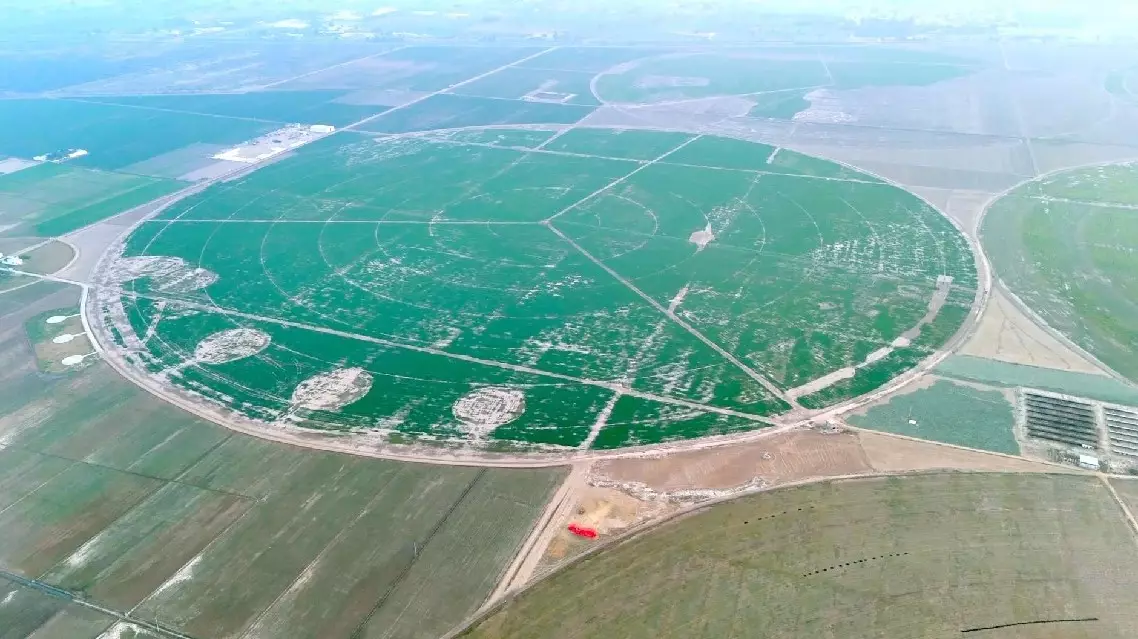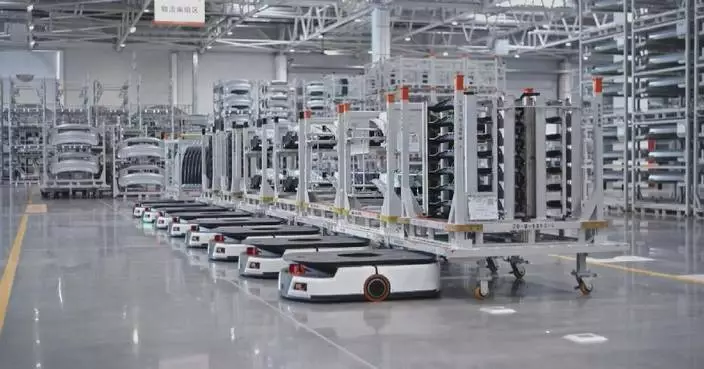The China Media Group (CMG) on Monday unveiled a list of documentaries it plans to air in 2025 in an event in Beijing.
The 50 documentaries showcase rich connotations of China's stories and vibrant panorama of China’s development in the new era through a multi-dimensional approach.
The documentaries are categorized into six sections to tell major events in important time periods, displaying the charms of Chinese civilization, introducing discoveries in nature and science, capturing the hustle and bustle of people’s daily life, and presenting cultural exchanges between China and other countries.
The event notably promoted three documentaries set to premiere during the Chinese New Year, also known as the Spring Festival.

CMG unveils list of documentaries for 2025

CMG unveils list of documentaries for 2025
A revolutionary agricultural project, jointly developed by Chinese experts and Pakistani researchers, is taking shape in Pakistan's Punjab province, driving innovation on an unprecedented scale and aiming to tackle food insecurity, a pressing issue both domestically and globally.
Spanning over 5,000 acres (more than 2,000 hectares), a high-tech farm in the province is at the forefront of transforming Pakistan's agricultural landscape.
It's part of a larger effort to achieve food security by leveraging cutting-edge technologies and collaborative expertise.
At the heart of this project is the use of high efficiency irrigation systems and state-of-the-art agricultural machinery.
By integrating both imported Chinese equipment and locally manufactured tools, the goal here is clear - maximize yields while minimizing costs.
"We have taken advantage of Chinese technology, especially in agricultural mechanization. We have introduced and imported state-of-the-art Chinese tractors which are very comfortable and work at scale. They have a higher rate of efficiency per day per person than our traditional model of tractors," said Sarfaraz, a farm manager.
Pakistan's agricultural sector has long faced challenges. With more than 60 percent of farmers relying on low-quality seeds from informal markets, the initiative seeks to bridge the gap by developing hybrid seeds better suited to changing climatic conditions.
Beyond crops, the initiative extends to livestock and dairy farming. Pakistan's milk and meat sector remain largely under commercialized. This project aims to change that by introducing large-scale and tech-driven livestock farms.
"The main purpose of this project is to import animals that are high in milk and meat quantity to increase our milk and meat production at the national level," said Shamraiz Akram, a livestock manager.
With modern technologies, these farms aim to improve productivity while boosting local economies through job creation and supply chain development.
Food processing and distribution are also key components. With several economic zones under the China-Pakistan Economic Corridor focusing on agri-processing, projects like this are strategically positioned to tap into larger markets.

China-Pakistan project contributes to food security in Pakistan











